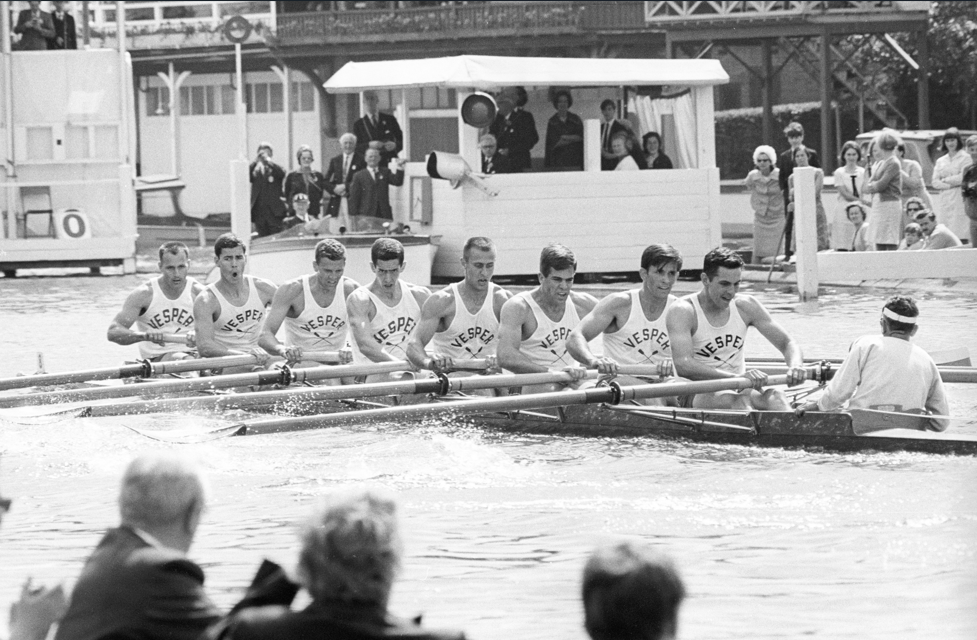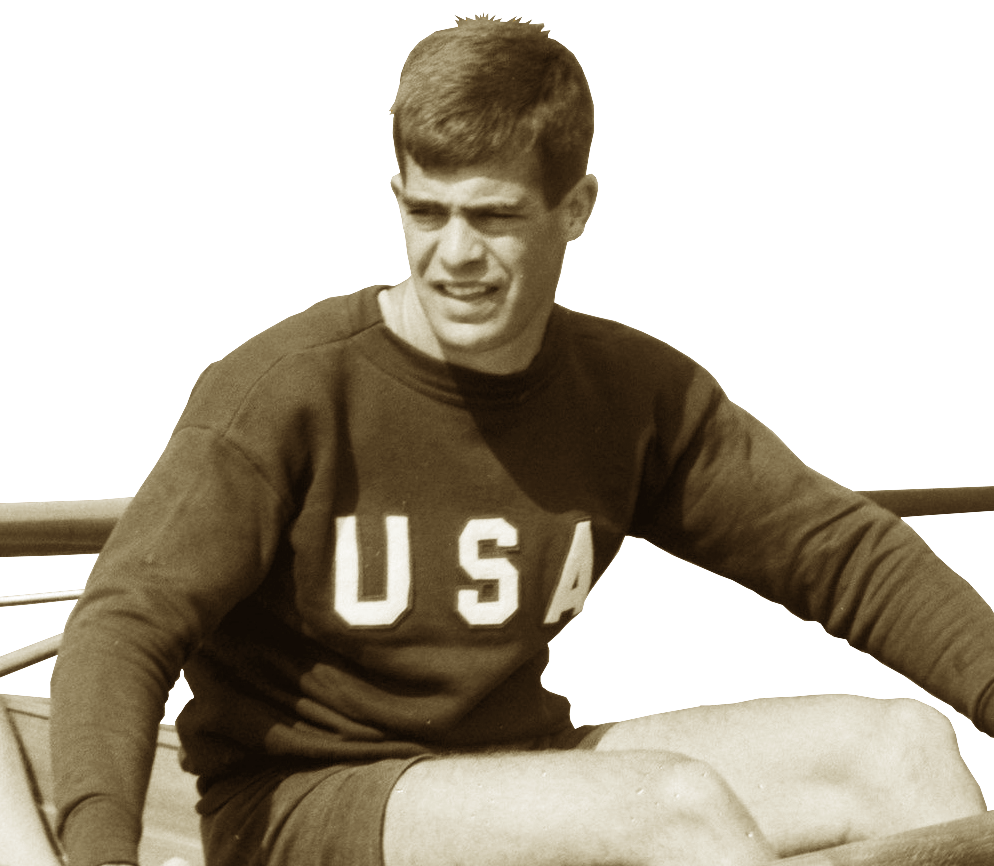

With an Olympic gold medal already in his back pocket, Boyce Budd ’57, third rower from right, competed with the Vesper Boat Club in the 1965 Henley Royal Regatta.
Lawrenceville’s Summer Olympians: H. Boyce Budd, Class of 1957
Even as Boyce Budd was rowing toward gold in the men’s eight with coxswain during the 1964 Summer Games in Tokyo, his path to the finish line was anything but a straight line.
Even as Boyce Budd was rowing toward gold in the men’s eight with coxswain during the 1964 Summer Games in Tokyo, his path to the finish line was anything but a straight line.
“I remember seeing an issue of Sports Illustrated that featured the 1956 Yale varsity team, which had just won the gold medal in Australia, and I had just been accepted at Yale,” Budd recalls. “And that picture just stuck in my mind. I thought, ‘God, what a bunch of studs. I wonder what that sport is like?’”
Budd made the Yale varsity as a sophomore, but to his bitter disappointment, found himself relegated to the junior varsity as a junior and senior. With crew seemingly behind him, Budd spent a postgraduate year at Cambridge.
“One day, I walked down by my Trinity College boathouse, and there, sitting at the dock, was a four with coxswain. It had a coach and a crew, but nobody in the number four seat,” he says. “The coach asked, ‘have you ever rowed before?’ I was about to give my apologia, and say, yeah, I rowed at Yale, but I was only on the JV, but he said, ‘go inside and get some kit, then come out and get in this boat!”
Before long, Budd made the Blue Boat, the university’s top boat, which races Oxford in the Henley Boat Races. There, he was a member of their winning eight and shared the pairs title in 1962. He decided then that he would dedicate himself to earning a spot on the 1964 Olympic team. Budd and a partner from the Yale team joined the Vesper Boat Club in Philadelphia, where club leader Jack Kelly was determined to assemble a club eight to compete for a spot in the Olympics.
“He talked a bunch of us, all of whom were there to train and race in small boats, into throwing our lot into the eight-oar trials,” he says.
It worked. Like his teammates, Budd could sense the instant chemistry in the boat. Even after just three days rowing eights, he knew it was special.
“I kept saying to myself, I can’t believe how this thing is going. I just felt it,” Budd says. “The coaches refused to tell us what our time was. Later on they told us that they couldn’t believe what they were looking at.”
The team qualified for the 1964 Olympics, held that October in Tokyo. Budd’s squad lost in the first heat to Germany by .27 seconds.
“I remember being distinctly angry and happy,” he recalls, noting the crew still had a possible path to the finals. “Angry, because I thought we had a little bit more of a sprint in us, and we only lost by about a yard. But then I thought, well wait a minute: we had a little bit left in us, and we just about beat the fastest boat in the world.”
The finals were delayed for hours by the weather, but with adrenaline coursing through his veins, Budd and his team got off to what he recalls as “the most perfect start that we had ever experienced.”
“It was so dark that the Japanese army was setting off flares to create some artificial light as we got toward the finish line,” Budd says. “I saw these flashes of light that I didn’t understand, and then finally, our little Hungarian coxswain screamed in his accent, ‘You are vinning! You are vinning! You are the vorld champion!’”
Budd’s team of eight crossed the finish line in 6 minutes, 18.23 seconds, five full seconds before the Unified German team. The spark of imagination kindled by a magazine photo had become his reality.
“There is so much serendipity in this,” Budd concedes. “What if I hadn’t shown up on that dock in Cambridge that afternoon? So many things have to go just right for it to turn out that way.”
A version of this story appeared in the summer 2016 issue of The Lawrentian.
